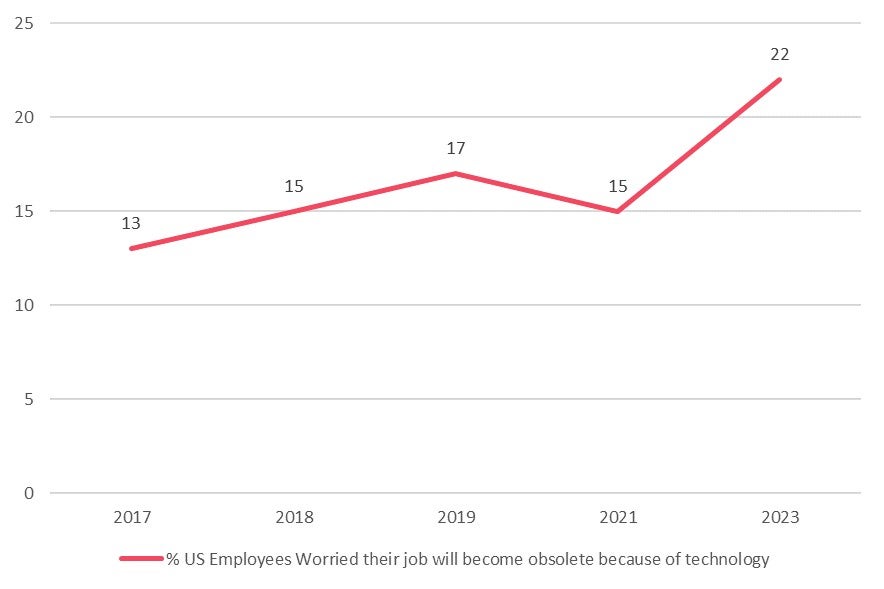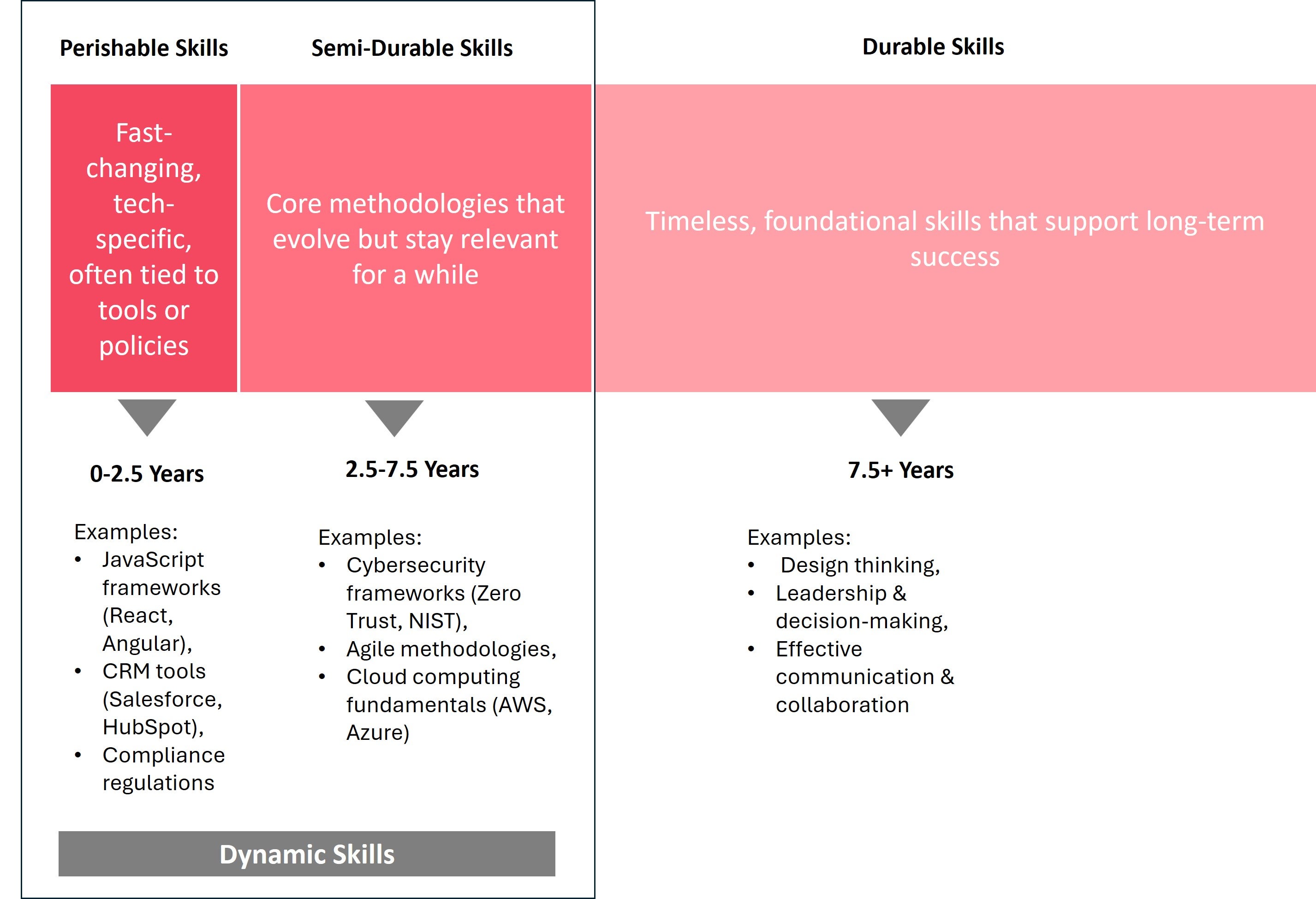Adaptability: The new skill to hire for
Tech skills were once the key to attracting the best talent. Mastering a coding language, a software suite or the latest buzz technology usually meant you were a top candidate for a role. Is that still the case?
In recent years, we’ve seen a major shift in certain technical expertise becoming obsolete, with some skills becoming outdated within just a few years.
Here’s the catch: companies aren’t just scrambling to keep up with the latest trends and disruptions; they are rethinking their hiring strategy entirely. Instead of chasing the latest tech skills, organisations are stepping back, leveraging data to prioritise a new must-have skill: adaptability.
Adaptability is the fastest-growing, in-demand skill
Companies are realising that adaptability is the ultimate differentiator. It’s no longer about hiring someone who checks every skill box today, it’s about finding people who can evolve with the job tomorrow. Adaptability topped LinkedIn’s Most In-Demand Skills for 2024 with the biggest year-over-year growth. With AI reshaping industries and job roles blending, adaptability isn’t just an asset — it’s the competitive edge teams need to thrive.
Technical skills may fade fast, investing in adaptability and durable skills ensures long-term career resilience. The smartest hiring strategies focus not just on current expertise but on future-proofing talent.
So, why is this trait suddenly stealing the spotlight, and how can it future proof your workforce in a world that’s constantly changing? Let’s dig into the trends and data reshaping the skills landscape.
What’s driving the rapid decline of previously high-demand tech skills?
According to The World Economic Forum’s Future of Jobs Report, 44% of today’s tech skills will be irrelevant by 2027. Meanwhile, IBM’s “Skills Transformation for the Workplace” report reveals most technical skills lose half their value in just two years. That means half of the tech knowledge professionals have right now could be obsolete before they even get comfortable in a role.
Why is this happening? Technology is moving at a lightning pace with AI and automation technologies leading the charge. Companies are jumping on these tools, with 72% planning to roll out AI in the next few years, according to McKinsey's Global Survey. By automating mundane tasks, traditional tech expertise isn’t enough. For hiring managers, it’s a wake-up call. Hiring can no longer solely focus on “hard skills” such as technical knowledge. A candidate must be assessed by their ability to learn and adapt to roles and responsibilities that will constantly change.
The Rise of FOBO
FOBO (Fear of Becoming Obsolete) is becoming a serious concern. According to a Gallup poll conducted on US adult employees, 22% of U.S. employees now worry that technology will make their jobs obsolete — a sharp rise from 15% in 2021.

Longevity of skills: Are they transferable?
As businesses and individuals rethink their approach to skills, the focus isn’t just on new skills, it’s on how transferable and durable they are. A solid skills framework should evolve alongside business needs, ensuring long-term resilience

Rise and fall of tech skills
As per Indeed's data, Clojure, the programming language, has seen an 80% drop in job posts in just 5 years. Even widely used skills aren’t immune to this shift. JavaServer Pages (JSP) and Ajax, both of which were in over 2% of tech jobs in 2014, have seen declines of 69% and 54%, respectively. Five years ago, Ruby on Rails was a go-to framework for app development fast-forward today, it is much less popular.
Why Adaptability Builds a Stronger Workforce
The skills gap is already a significant challenge as per the PWC report “The lost workforce by 2030”, The U.S. alone could face an $8.5 trillion talent shortage directly linked to the skills gap.
Data conveys that adaptability isn’t just a “nice-to-have” skill, it’s a competitive advantage and a must-have for a future-ready workforce. A study by McKinsey & Company found that candidates who showed increased adaptability were 24% more likely to be employed. With AI set to create 97 million jobs by 2025 (according to WEF), the ones who’ll thrive are those who can pivot and evolve fast.
But the solution isn’t just about hiring new talent with the latest tech skills, it’s about upskilling existing teams, leveraging real-time data to anticipate skill gaps, and refining hiring strategies. Smart businesses are already using skills intelligence, along with talent and market mapping, to identify internal talent ready to step up.
The future belongs to those who adapt
To build a resilient, future-proof workforce, companies must make adaptability an integral part of their hiring strategy. Instead of focusing solely on technical skills, organisations need to look at candidates with the agility to learn, evolve, and thrive in a rapidly changing landscape regardless of the industry in which they operate. Prioritising adaptability in recruitment and workforce development can ensure long-term success.
Related content
View AllOver the last five years, there has been significant disruptions across technological, geopolitical, and economic fronts, resulting in many changes within hiring. One notable shift is the rise of the contingent workforce, particularly in the APAC region. A study on contingent workforces by Data Inte
Read MoreWhat is a mid-year performance review? Mid-year performance reviews are more than a tick box, they’re a valuable opportunity to reconnect with your team, assess progress and ensure everyone’s aligned for the second half of the year. Unlike annual or end-of-year appraisals, these reviews should focus
Read MoreIn recent years, everyone has felt the pinch of economic uncertainty due to overall economic downturn, high inflation rates, geopolitical tensions, supply chain disruptions and even a shift in market demand. How do organisations across the globe respond to such an unpredictable climate? In 2022, one
Read More